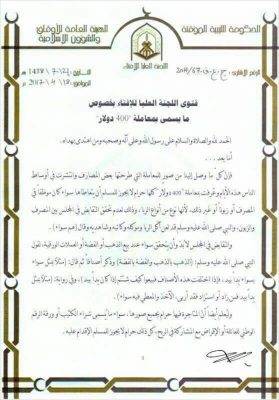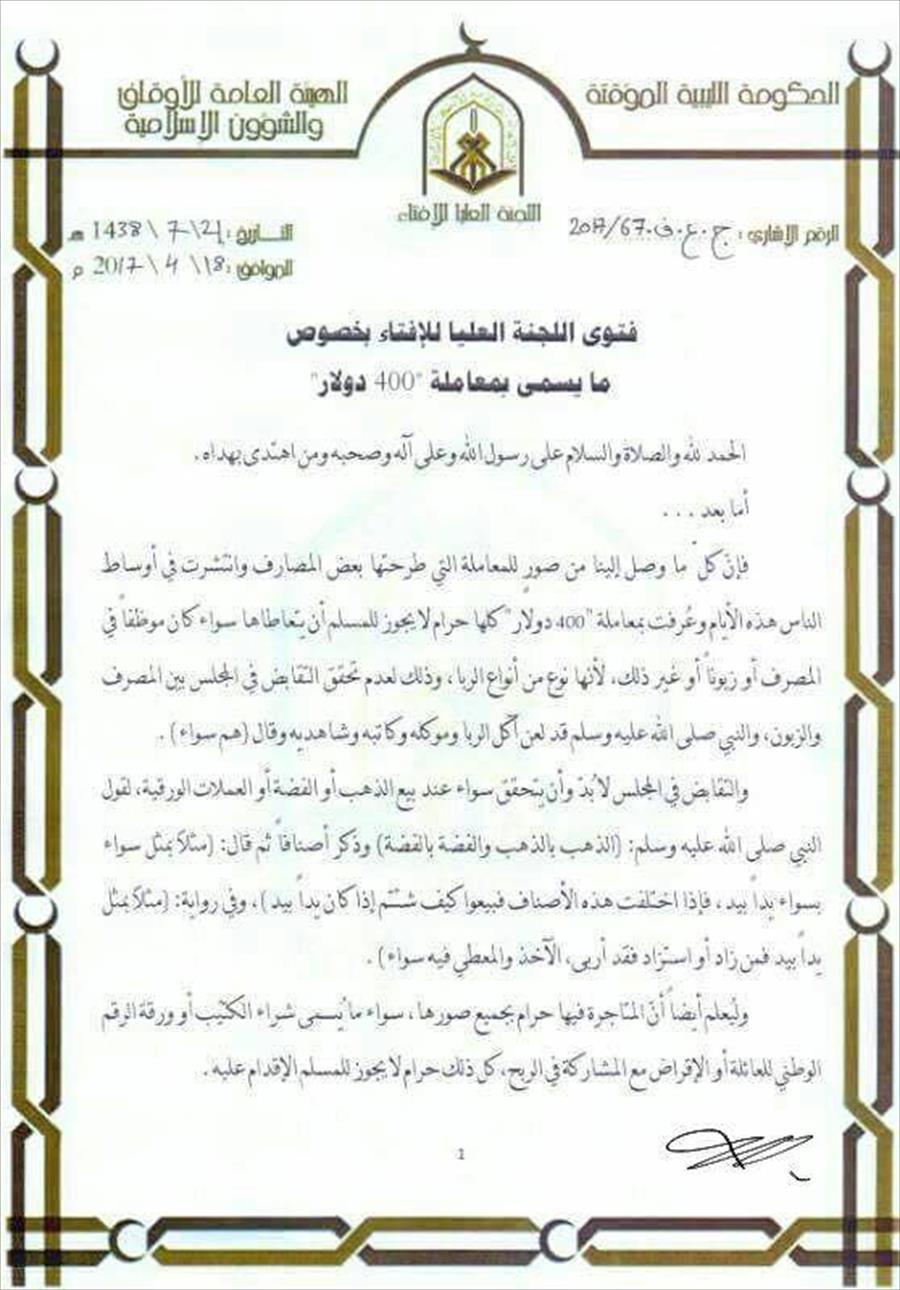By Libya Herald reporters.

Tripoli/Benghazi, 19 April 2017:
The fatwa authorities in Beida recognised by the interim government of Abdullah Al-Thinni based in the same town have condemned as “haram” the Central Bank of Libya’s scheme allowing Libyan heads of families to apply for and obtain $400-worth of Libyan dinars for each member of the family. It follows the emergence of a scam allegedly involving staff at some banks and the black market.
It is claimed that individuals are being paid LD 1,000 in cash by bank staff who are part of the scam simply to “borrow” individuals’ National Identity Numbers. With these, they then process claims for the $400 payment, which is made at the official rate. The dollars are paid out and then converted back to dinars at the black-market rate by bank staff and the black-marketeers. For every thousand dinars paid out, the dealers are said to be making over LD 5,500 – a profit of more than 450 percent.
The High Committee for Fatwas (not the same as the Dar Al-Ifta or “Fatwa House” in Tripoli) has said that what is reportedly happening is riba – usury – in this case the unjustifiable use of money to make more money.
While many in the east regard the fatwa committee as being in the hands of Salafists, whom they reject, the pronouncement has lead to concerns in the area that the $400 offer may be scrapped. Thus has resulted in the dinar again dropping locally against the dollar.
In Benghazi this afternoon, the Libya Herald was quoted LD 9.30 to buy a dollar. In Tripoli, on the other hand, the black market was quoting LD 8.50 to the dollar. However, as one senior Tripoli official added, “that may be the price they are quoting, but no deal are actually being done at the moment”.
Also, the official claimed, many people have not so far obtained the $400 for which they applied.
Meanwhile, the parallel, eastern-based Central Bank of Libya (CBL) has announced that LD 200 million in cash will start being distributed through the commercial banks as of tomorrow, Thursday. Another LD 50 million is supposedly to be distributed by banks in the south of the country, according to the Beida CBL’s head of the committee dealing with the monetary crisis, Ramzi Al-Agha.







